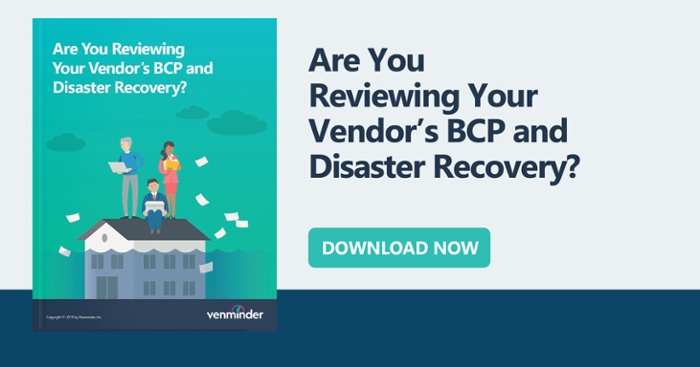I have to admit a delayed realization on my part. Despite having been in third-party risk management, vendor risk management or quality assurance for about half of my career, I completely underestimated what the COVID-19 issue meant in terms of third-party risk management. That is, until we were planning a webinar.
As we were discussing the slides, two of my colleagues started commenting on how they couldn’t find antibacterial wipes or hand sanitizer in the stores. A Fortune article mentions that as of early March, 94% of Fortune 500 companies had experienced a supply chain disruption due to COVID-19.
Then it hit me. I had totally missed the point.
No matter how well prepared an organization is, they’re totally reliant on their underlying third parties to be just as resilient. If massive numbers of employees must work from home or, worse yet, get sick and can’t work at all, there’s a disruption to the normal flow of activities.
Lesson to Be Learned in Third-Party Risk Management
We’ve all been required to have pandemic plans for years but how often have we looked at them or even tested them? Well, with a 94% disruption factor, I’d say not often enough. You’d think in the wake of prior epidemics and pandemics of recent years we’d learn our lesson.
Here are 3 reminders for current and future pandemic planning:
- Cybersecurity Posture: We all need to make sure our cybersecurity posture and your vendor’s posture is strong with so many employees forced to work remotely. Ensure you’re considering the CIA triad. The CIA triad stands for confidentiality, integrity and availability and means the following:
- Confidentiality: Is unauthorized disclosure being prevented?
- Integrity: Can you confirm data can’t and won’t be modified by unauthorized means?
- Availability: Is information available when needed and only to authorized personnel?
- Current Pandemic Plans: We all need to make sure our pandemic plans are up-to-date. When reviewing, ensure and consider things like the following are within the plan:
- An overview of how you’ll operate with a limited number of staff
- How you plan to sustain operations if your entire staff or your vendor’s staff is working remotely
- How you plan to sustain operations if something goes wrong with a vendor
- If backup facilities will be needed or not for you or your vendor
- Your awareness plan for the media and customers
And, be sure to test the plan.
- Third-Party Pandemic Plans: Now, here’s the harder truth. We all need to ensure our third parties employ practices just as strong, or it’s all a house of cards.
- During your due diligence process, you should be requesting third party's pandemic plans – especially if the vendor is critical to your operations. Therefore, you should already have their plan on file. If you don’t, be sure to request it now.
- Comb through their pandemic plan and ensure it meets or exceeds your plan. Review the same aspects from number 2 that you review on your own. Also, verify they’ve tested it.
Hopefully, this virus and the related scare pass quickly and without much more loss. Hopefully, as well, this is a wake up call to keep our pandemic plans as part of our larger business continuity plans up-to-date and hold our third parties and suppliers equally accountable.
Be well.
The coronavirus shows the importance of your vendor's business continuity plans. Learn how to properly review that. Download the eBook.







